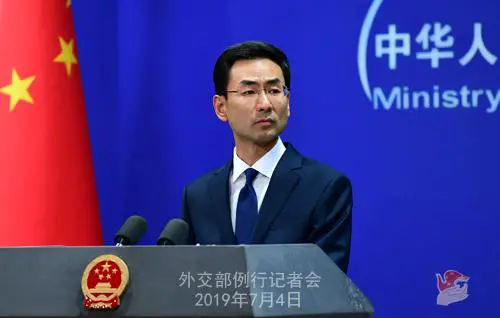Wall Street professionals have expressed optimism about China's initial public offering (IPO) reform plan, which ends a year-plus halt on listings, emphasizing the importance of law enforcement.
The China Securities Regulatory Commission (CSRC) unveiled the plan Saturday, a major step in introducing a system of registration for IPO issuances to replace the current administration approval mechanism.
A commission spokesman said it could take about one month to complete preparations before the first company started its registration process.
"It's going to be long-term gain versus short-term pain," Mark Otto, managing director at J. Streicher & Co., told Xinhua Monday. "Ultimately, I'm bullish on that. I think it's going to work out in the end."
Moreover, he said he was "very optimistic" the IPO reform plan would bring more foreign investors to the Chinese stock market.
More than 700 firms are waiting in the IPO pipeline and about 80 are expected to complete their registration procedures for IPO issuances by the end of January, according to the CSRC.
Following the announcement of the plan, Chinese stock markets sold off on Monday, with the benchmark Shanghai Composite Index down 0.59 percent and the Shenzhen Component Index down 1.94 percent.
Otto considered the sell-off "not a big dip" but a "knee jerk reaction," saying small cap stocks sold off typically because they are trading at a premium now.
Market analysts believe the shift from the approval-based system to a registration-based mechanism for IPO issuances will make it easier for companies, especially small capital ones, to raise capital publicly.
Jack Y. Liu, senior vice president at Chardan Capital Markets, a New York-based investment bank, told Xinhua Monday the reform plan "has profound significance in the long run."X The emphasis on a registration-based mechanism not only opened up the channel for IPO issuances, but more importantly, it facilitated pre-IPO funding for companies, Liu said.
Echoing Liu's viewpoint, Otto said the plan solved the lending problem in China, an excellent way for small companies to raise money.
"You may have a lot of these small companies that are waiting to blossom and waiting to thrive, that will actually be able to make money off these IPOs and do whatever they have to do, whether it's pay off debt, build up their infrastructure and expand. So I think, in the long term it's something that's bullish to the economy, short-term pain for sure," he said.
The plan would be market-oriented and law-based and stress a regulation philosophy with information disclosure at its core, according to the CSRC.
In Otto's view, enhancing information disclosure can better protect investors' interests. "Full and fair disclosure is everything... I think it will bolster investor confidence, and hopefully, as these IPOs come into play, it will bolster volume on the Shanghai Composite as well."
Moreover, the experts say law enforcement is key to the IPO reform.
"Everything is going to come down to the enforcement," Otto said. "It's great to have all of these rules put in place, but unless there is follow-through with enforcement and people realize that there are going to be consequences for the actions or even penalties, then there really won't be a change."
Liu said regulators should strengthen law enforcement and penalize activities, such as transactions among related parties, insider trading, misappropriation and violation of securities rules by corporate executives.
Liu also warned that, after the relaxation of IPO issuances, some companies might take advantage of loopholes in the not well-developed market and use the money they raised to invest in the real estate market rather than their own business, which would intensify inflationary pressure in China. Stock market frauds might also increase as a result, he said.
To avoid these potential risks, Liu suggested the Chinese government enact relevant laws and regulations and take good control of the pace of relaxation.
He also suggested enhancing the education and training of investors to form a mature and healthy equity market.
"Many investors don't really understand what a registration-based system means. The process needs not only time, but perhaps lessons (from failures). Investors should learn about related laws and regulations, and the relationship between risk and investment," he said.
 简体中文
简体中文

